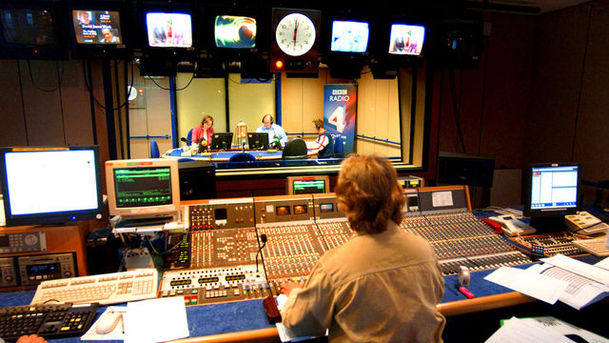Today - 18/11/2009

Presented by Justin Webb and Sarah Montague. The government is to set out its legislative proposals in the Queen's Speech, the last before the general election. David Cameron has predicted the speech will focus on 'dividing lines between Gordon Brown and the Conservatives'. Michael Gove, shadow secretary of state for children, schools and families, outlines his party's views on the speech. Social networking site Bebo is introducing a link on every profile to the Child Exploitation and Online Protection Centre (CEOP). By clicking on the CEOP Report button, users will be able to access to the latest advice and help regarding issues such as viruses and hacking. Other major social networking sites including MySpace and Facebook have been criticised for failing to introduce the button. Jim Gamble, chief executive of CEOP, discusses the anti-bullying device. What is it like to have Osama Bin Laden as your father? New book Growing Up Bin Laden describes the upbringing of one of his sons, Omar, and his mother, who fled from Bin Laden during the Soviet-Afghan war. Author Jean Sasson discusses the book. The Welsh Assembly should be given full law-making powers, according to the results of a two-year report into devolution. The report found that a majority of Welsh people want a clearer, more efficient and greater division of power from Westminster. Sir Emyr Jones Parry, chair of The All Wales Convention, which conducted the report, comments on its findings. Australia is viewed as the bridge to gap relations between the West and China. But the relationship has been soured in recent months by what many people regard as China's bullying behaviour. Correspondent Nick Bryant reports from Melbourne. Thought for the Day with the Right Rev Tom Butler, Bishop of Southwark. It has emerged that the company of a soldier killed in Helmand province on Sunday were awaiting new body armour, raising further questions about the protection of British troops. Former chief of the defence staff Lord Guthrie examines the whether the military can sustain their current level of engagement. The Labour Party is set to deliver proposals for its election manifesto in the Queen's Speech, the last before the general election. Among the bills being considered are the provision of free personal care for thousands in England and the limiting of bankers' bonuses. Political editor Nick Robinson comments on the upcoming speech, and business secretary Lord Mandelson discusses his party's policies. A senior NHS manager has criticised hospital soap operas for the way they portray doctors and nurses. Antony Sumara, chief executive of the Mid Staffordshire NHS Foundation Trust, has criticised programmes such as Casualty and Holby City for portraying doctors and nurses as adulterers, and not washing their hands. Mr Sumara and John Yorke, head of BBC Drama Production, debate whether or not hospital dramas portray reality. The partner of Rachel Nickell, who was killed on Wimbledon Common, has complained to the Independent Police Complaints Commission about the Metropolitan Police's handling of the investigation. Ms Nickell was stabbed in front of her toddler son 17 years ago. An innocent man, Colin Stagg, spent more than a year in prison suspected of the crime before being freed by a judge. Last year, Robert Napper admitted her manslaughter on the grounds of diminished responsibility and was ordered to be detained in Broadmoor indefinitely. Andre Hanscombe, Rachel Nickell's partner, discusses the police handling of the case. A survey has found that nine in ten mothers cook the same meals again and again. The top mother's choice is traditional spaghetti bolognaise. Diana Henry, mother and Sunday Telegraph food writer, and Arabella Weir, actress and mother of two, discuss whether the rise of the celebrity chef has influenced cooking habits. The Queen's Speech today could be the last for this Labour government. Correspondent Mark Sanders looks back on the party's 1997 Queen's Speech, and political commentator Anthony Howard reflects on the history of the occasion. European leaders are meeting tomorrow to decide who will be the first President of the EU. For the Today Programme, correspondent Jonny Diamond assesses the chances of Herman Van Rompuy, the the prime minister of Belgium. David Rennie, EU correspondent for the Economist, and Martin Winter, EU correspondent for German newspaper Sueddeutsche Zeitung, examine the candidates.